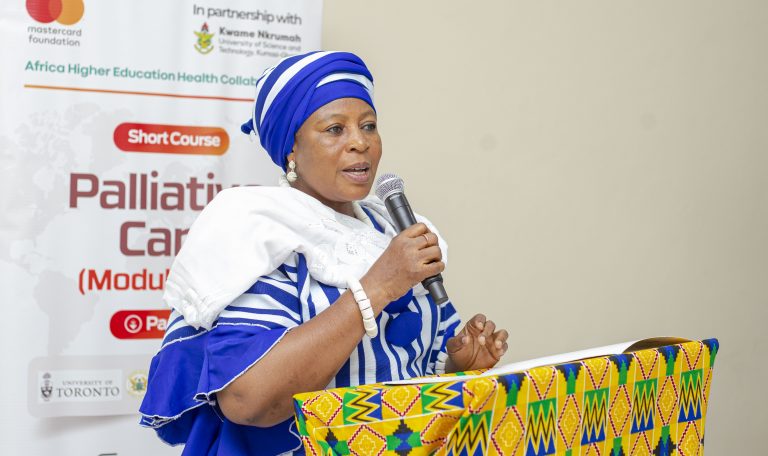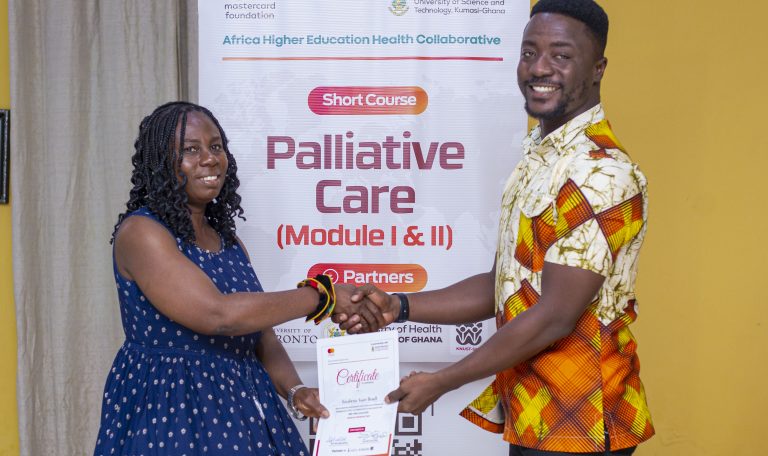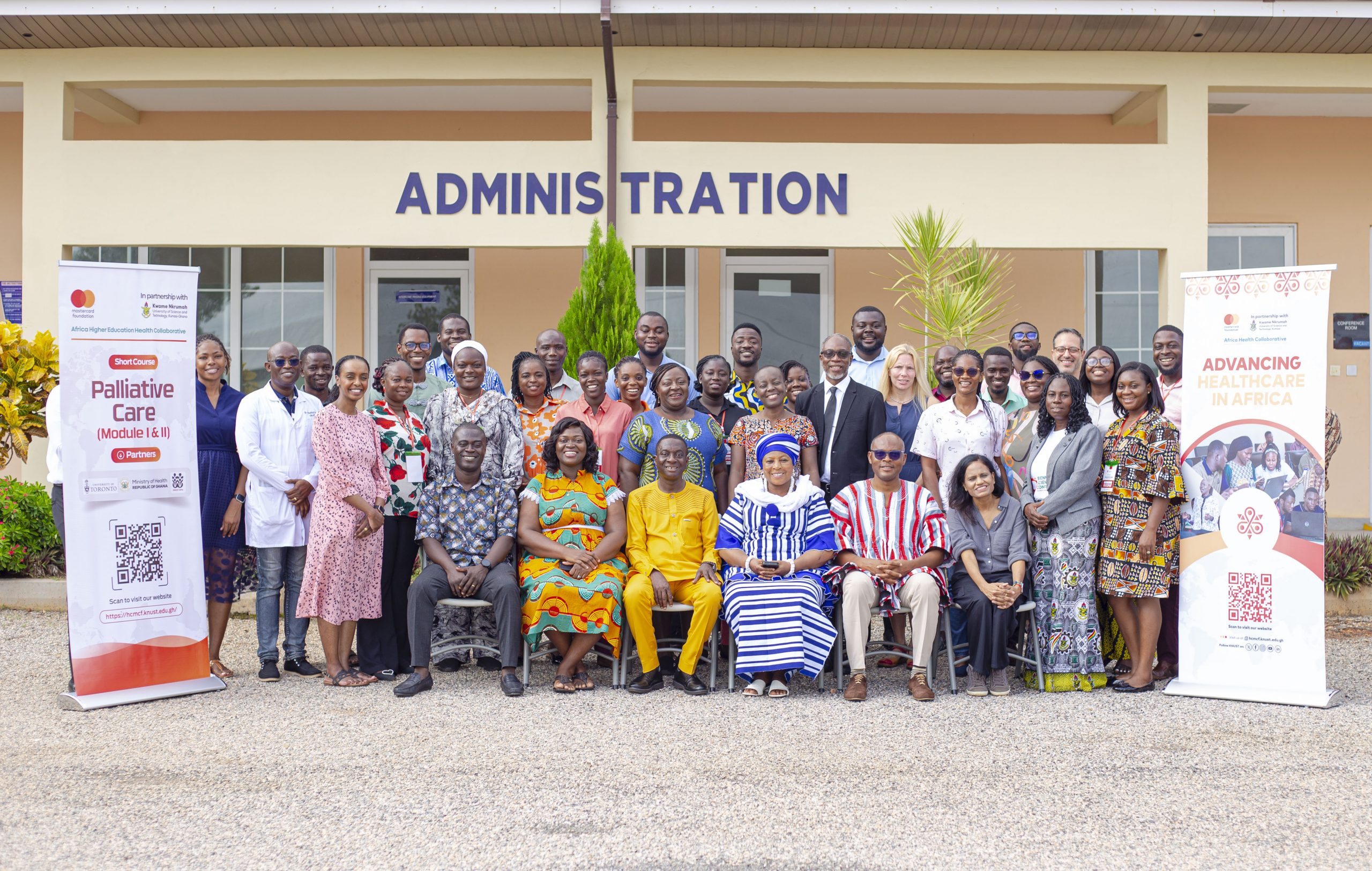The Health Employment Pillar of the Africa Health Collaborative at the Kwame Nkrumah University of Science and Technology (KNUST), in partnership with the Mastercard Foundation, has successfully delivered Module II of the Advanced Palliative Care Training in the Savannah Region.
The three-day residential course brought together 20 selected healthcare professionals from across Ghana to deepen their competencies in managing patients with life-limiting illnesses.
The programme is designed to strengthen frontline palliative care delivery through a blend of theory, case-based learning, communication skills development, and interdisciplinary collaboration.

The training, now in its third year, is facilitated by the Health Employment Pillar of the Collaborative, led by Dr. Kofi Akohene Mensah. The course forms part of a broader initiative in partnership with the University of Toronto, the Ministry of Health, and the Ghana Health Service, focused on improving the quality of primary healthcare in Ghana.
“The participants are here because of their commitment to providing compassionate care to their patients and families,†Dr. Mensah said. “These courses will equip them with advanced skills to address complex challenges in palliative care and take their practice to the next level.â€

Speaking on behalf of the Savannah Regional Health Directorate, Hajia Fuseina Sulemana, District Director of Health for Bole, emphasized the significance of decentralising access to specialised care.
“True palliative care is about improving the quality of life, for patients and families facing serious health challenges,†she said. “It is about managing pain, supporting emotional and spiritual needs, and enabling dignity and trust in care. That is why this course, especially in this region, is such a powerful and timely intervention. You are pioneers. The knowledge and passion you carry forward will touch lives, ease suffering, and restore hope.â€
Participants shared reflections on how the training is transforming their professional outlook and approach.

Ms. Peace Dordor, a Community Health Nurse from Hlihave CHPS Compound, said the programme enhanced her ability to provide holistic care.
“I feel more equipped now, not just to support patients physically, but to address their fears, hopes, and cultural values. It also taught me how to have difficult conversations around end-of-life care. I plan to organise in-service training sessions at my facility to share this knowledge.â€

Mr. Pius Richmond Ahiavih, a Physician Assistant, said he has already started applying lessons from Module I.
“I have been mentoring nurses in my facility on communication and palliative symptom management. I also plan to form support groups to help patients understand they are not alone. Having a chronic illness doesn’t mean life has ended, just that a new, meaningful phase is beginning.â€

Mr. Kwabena Asare Boadi, a Senior Staff Nurse with the Presbyterian Health Services, said he aims to institutionalise palliative care practices at his facility.
“I hope to introduce structured protocols, organise case discussions, and develop a referral system. I’ll also mentor junior staff and encourage others to take part in similar training to create a ripple effect of knowledge transfer.â€
